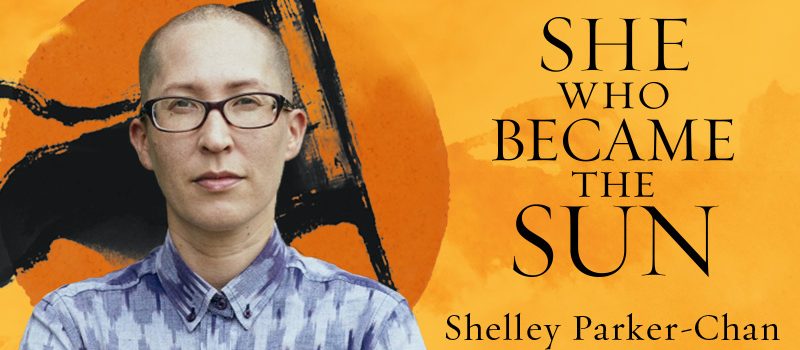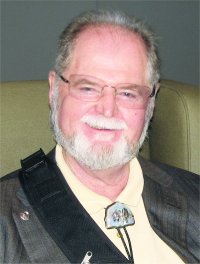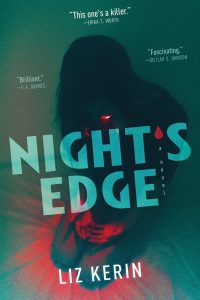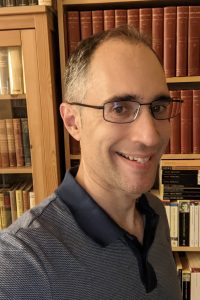Spotlight on: Shelley Parker-Chan
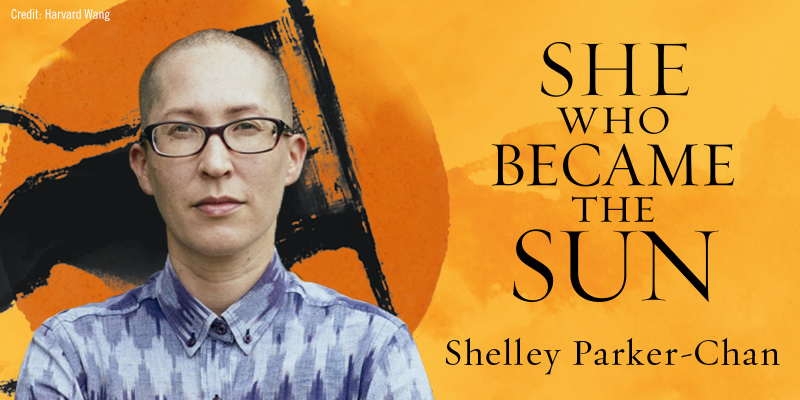
Tell us about your debut novel She Who Became the Sun — the world where it takes place, and the characters who inhabit that world.
She Who Became the Sun is set in China in the mid-1350s, which was the last gasps of a period of short-lived Mongol rule over China — the Yuan dynasty. The Mongols were steppe warriors from a nomadic culture, and China was a sedentary civilisation with a complex bureaucratic system of government, so it didn’t work out very well. The Yuan’s institutions were fragile, they made a lot of mistakes with things like fiscal policy, and their oppression of ethnic Chinese provoked huge resentments. So when a spate of natural disasters hit, about 80 years into Mongol rule, everything fell apart. Peasants rebelled; warlords grabbed territory; bandits terrorised the countryside. It was chaos. And that’s the kind of situation in which ambitious people can find opportunities to advance further than they ever could have ordinarily.
My main character, Zhu Yuanzhang, is such a person. She’s based on the historical figure of the founding emperor of the Ming dynasty, but she’s not exactly him. As a girl peasant, the world has decreed her to be worthless. Her fate is to die early. But she refuses. She steals another identity and another fate, because she’s determined to survive. And sometimes the best way to survive is to be so great that nobody can touch you.
She Who Became the Sun is the first book in the Radiant Emperor duology. Can you give us any hints for what the future of the series holds?
I’m always being told off for spoiling the end of the series when I say, “So, spoiler, she becomes the emperor.” I mean, surprised Pikachu face, it’s kind of the whole premise. It’s in the series title! Probably everyone is going to come after me with pitchforks about Book 2 anyway, but they’d really come after me if I was like, “oh, surprise, I pitched this as a story about the rise of an emperor, but she dies at the final hurdle. This is in fact She Who Almost Became the Sun.” I think it works better if you know.
The interest of Book 2 lies in the journeys of three main contenders for the throne, and what each of their identities would imply for the institution of empire were they to become emperor. Zhu is obviously one contender, and there’s a man and a woman. One of the central questions of She Who Became the Sun was: what will you do to get what you want? The sequel asks: what are the consequences of what you did, to get what you wanted? How do you deal with those consequences, how do they inform your future choices, and what kind of person do you become because of them?
Your novel is a richly detailed historical fantasy. What was your research process like?
I do research not so that I can produce a historically accurate book, but mainly for story inspiration. Specifically, character inspiration. My process is very non-systematic. I love coming across little tidbits that catch my interest, like a historical Yuan warrior prince who was half-Mongol and half-Chinese (he had a lot of issues), and then taking that idea and running with it in my own direction. I’m not interested in finding out every known detail about that guy’s life and replicating it faithfully in fiction. History is already bursting at the seams with the life stories of a particular kind of person already, namely cishet men. Where’s the fun in telling it straight?
With this particular historical figure, I already knew I wanted to tell a story about the clash of different masculinities—that of the (Mongol) warrior and of the (Chinese) scholar. So I split him down the middle and made him into two characters: a warrior prince and a scholar prince. And then after that, when I was reading or visiting an art gallery or museum or whatever, I’d come across other little tidbits, and they might seem like something those characters would wear, or eat, or think about in their lives, and I’d sort of colour in the world around them with those details. But worldbuilding doesn’t appeal to me all that much.
You’ve served as a diplomat and worked in international development, specializing in human rights, gender equality, and LGBT rights in Southeast Asia. You also did graduate work on the subjects of war crimes and restorative justice. How have those experiences influenced your work?
That makes it all sound so serious! The reality is that both international relations and international development are a bunch of well-paid clowns in a clown car making a complete hash of solving the world’s worst problems. I mean, mostly everyone has good intentions. But these are structural, immensely difficult problems that can’t be solved in a couple of years, or even over generations, and usually not by outsiders. And the international bureaucracy has truly Kafka-esque levels of absurdity when it comes to getting things done.
She Who Became the Sun is a direct response to all of that difficulty and frustration and complexity—by being escapist. At least on the revolution side of things. When reality is hard, sometimes all you want is catharsis. I’m tired. I think we’re all tired. I want to see the underdog triumph, I want the oppressors to realise what it’s like to suffer, and I want it to be clean and easy and satisfying in the way that reality never is. Let me have my fantasy, you know? I want to have fun for a minute. But just occasionally, I suppose, reality creeps in. Like when the characters say: intentions aren’t what matters. Who cares if you didn’t mean to make a hash of things? People are still dead.
The complexity (and sometimes fluidity) of gender identity is a major element in She Who Became the Sun, and you received an Otherwise Fellowship (for works “of speculative narrative that expands our understanding of gender.”) Tell us about why it’s an important subject for you. Does SF provide unique opportunities to explore that space?
What I really like about SFF is how it can offer meaningful representation of marginalised identities in a gentler and more cathartic way than realistic contemporary fiction. When I read contemporary fiction about a character that shares exactly the same identity as me, it can be a gruelling experience. If it’s done well, it’s complicated and messy and has all the ambivalence and unresolved issues that real life does. There might be some catharsis, but it’s just not the way of the real world to have complete resolutions to complicated issues. And even if it’s done well, often a character can have the same identity as me but a completely different experience of it. Which of course is natural, but it adds a layer of distance as I read.
What SFF is really good at is creating types of otherness that don’t exist in the real world. Readers can project aspects of themselves into these characters without having to have the character accurately represent all of our real-life experiences. It helps sidestep that reaction of “oh, that isn’t my experience of my identity.” That’s why for the purposes of exploring nonbinary gender, I created a eunuch character. Nobody has a eunuch identity, but if you’re genderqueer or trans, or cis but understand what it’s like to be in a gendered body you feel shame about: you might be able to see a fragment of yourself reflected in him. As a writer, working in a fictional space without contemporary identity labels is very freeing. It so much easier to show the complexity of human experience—our behaviour, our feelings about ourselves, the way we negotiate the inherent pliability of the social construct of gender—without being burdened by expectations of “good/correct representation”.
What writers, inside and outside the genre, influenced you? Have you always been a reader of speculative fiction?
I read a lot of speculative fiction as a kid. But in my teens I drifted away into anime and manga, and from there into the world of fanfiction, because that’s where the queer romance content was. For maybe fifteen years I was reading solely fanfiction and nonfiction. I still mostly read nonfiction: nature writing and art criticism for the shock of the language; sociology and philosophy and human interest stuff that makes me think about how the world works; memoir for that window into other lives.
The first big influence on my fiction style was classic travel writing—authors like Wilfred Thesiger and Jonathan Raban. Now I read a lot of creative nonfiction, so that’s an influence. A book I come back to again and again is Helen Macdonald’s H Is for Hawk, which is the most exquisite amalgam of nature writing, a personal meditation on grief, and a sympathetic examination of the (queer) life and works of T.H. White. I also read a lot about visual and performance art, because I like to borrow from the ways those media represent the interiority of human experience. But the number one influence on how I write has been fanfiction. Fanfiction’s emotional honesty, the sincerity with which it lays fear and desire on the page—that’s what I’m always aiming for.
Shelley Parker-Chan is an Australian by way of Malaysia and New Zealand. A 2017 Tiptree Fellow, she is the author of the historical fantasy novel She Who Became the Sun. Parker-Chan spent nearly a decade working as a diplomat and international development adviser in Southeast Asia, where she became addicted to epic East Asian historical TV dramas. After a failed search to find English-language book versions of these stories, she decided to write her own. Parker-Chan currently lives in Melbourne, Australia, where she is very grateful to never have to travel by leaky boat ever again.
 While you are here, please take a moment to support Locus with a one-time or recurring donation. We rely on reader donations to keep the magazine and site going, and would like to keep the site paywall free, but WE NEED YOUR FINANCIAL SUPPORT to continue quality coverage of the science fiction and fantasy field.
While you are here, please take a moment to support Locus with a one-time or recurring donation. We rely on reader donations to keep the magazine and site going, and would like to keep the site paywall free, but WE NEED YOUR FINANCIAL SUPPORT to continue quality coverage of the science fiction and fantasy field.
©Locus Magazine. Copyrighted material may not be republished without permission of LSFF.


